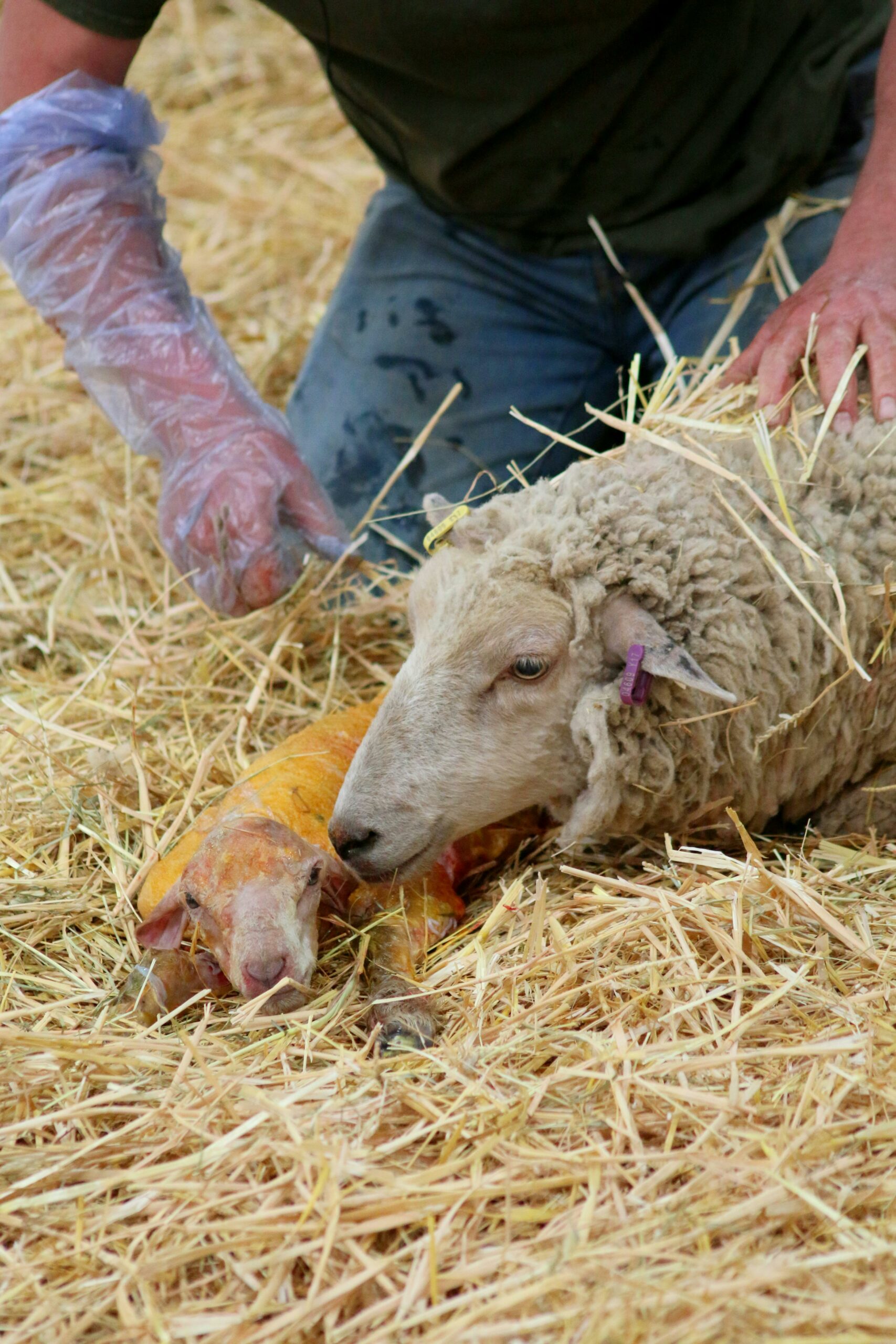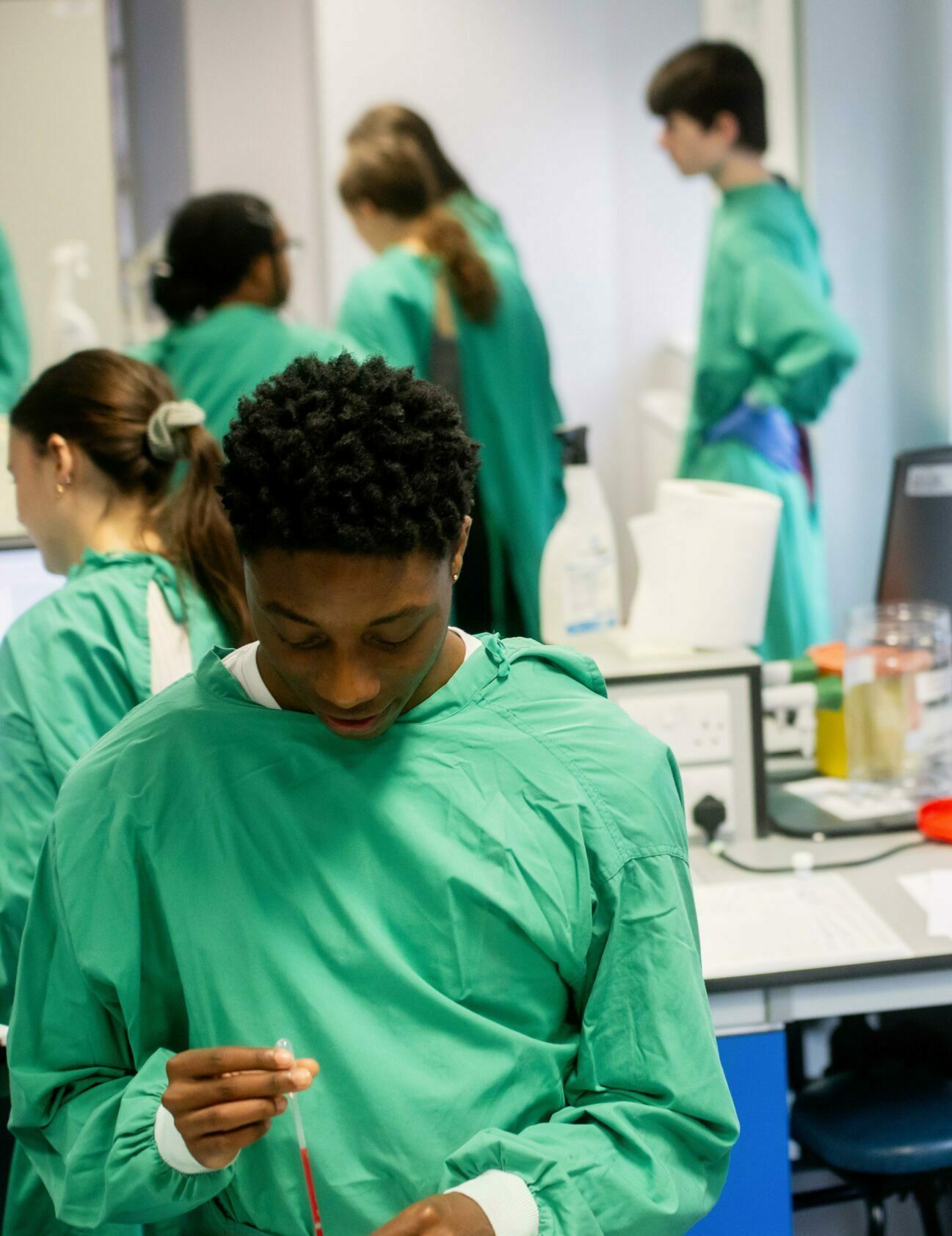Studying Veterinary Medicine at Cambridge
- UCAS Code: D100
- How many are admitted to Cambridge every year: 73 in the 2023 cycle
- Minimum offer: A*AA at A Level or 41-42 points in IB with 776 at Higher Level
- Essential subjects: Chemistry; at least one of Biology, Physics, or Mathematics
- You can’t apply to this course if you have failed or been excluded from another veterinary school
You will have the opportunity to learn core scientific foundations along with intensive yet supportive practical and clinical training.
The course lasts 6 years:
- for the first 3 years you focus on scientific principles underlying veterinary medicine and develop your knowledge of the professional, ethical, financial, management and social responsibilities veterinary surgeons have
- for the last 3 years you’ll apply your knowledge to clinical scenarios and clinical practice. This includes a whole year spent mainly undertaking clinical work
If you successfully complete the first 3 years of the course, you’ll graduate with a BA (Hons) degree.
If you then successfully complete the last 3 years, you’ll graduate with a BA as well as VetMB.
The Department of Veterinary Medicine is performing world class research and there are world leading clinical specialists among our staff. We have state-of-the-art equipment and a range of clinical facilities.
For more information visit the Veterinary Medicine Course page on the University of Cambridge’s website.
What can I do with a degree in Veterinary Medicine?
This course provides a thorough veterinary education, equipping you to pursue a wide variety of veterinary related career pathways. However, it also represents a hugely diverse subject that comprises all the science subjects along with practical and communication skills. Cambridge vets are over-represented at the top of the profession and enter a range of additional roles such as research and leadership.
For more information, please visit the University Careers Service website.

Studying Veterinary Medicine at St Edmund’s College
St Edmund’s offers the opportunity to become a vet for students who have already taken a degree subject or who have decided later in life that they would like to pursue the career. We feel strongly that Cambridge should produce graduates who reflect a diverse educational experience. St Edmund’s has a strong tradition of Veterinary Fellows being key members of the vet school and the wider vet community. Our current Director of Studies is a St Edmunds graduate who along with nearly twenty years’ experience as a small animal vet has also achieved a Diploma in Medical Education (he’s on the pathway to his Medical Education Master’s degree in 2025). As with all our supervisors, he is passionate about education and the support of the students.
St Edmunds is ideally situated for Vet students as its location is equidistant between the city centre departments and the vet school on Madingley Road. Its tradition as a ‘Vet’ College means we are lucky to be able to recruit strong academic staff for student support. We also work closely with the other mature Colleges to form a strong sense of a mature identity within the subject.
How to Apply
Applications for all courses are made through UCAS. You must apply by 15 October 2025 to be considered for entry in October 2026.
Applications for 2025 entry have already closed
Requirements
Tests
Interviews
Deferred Entry
Affiliated students
What is a typical Term’s work
During the first 3 years of the course you’ll have lectures and practical classes and small-group supervisions.
You can typically expect 20 to 25 teaching hours each week. You’ll also have 120 hours of dissection across the first 3 years.
During the last 3 years you’ll have lectures, practicals, group work in directed learning sessions, seminars, discussions and tutorials. You’ll also have practical clinical classes.
You will not have any lectures in the sixth year of the course.
People
- Pre-clinical Director of Studies: Dr Stuart Eves
- Clinical Director of Studies: Professor Lucy Davison, MRC Clinician Scientist Fellow
Fellows:
- Dr Fernando Constantino-Casas, Tutor, University Pathologist
- Dr Ian McCrone, University Physician (Farm Animal Clinical Team Leader), Department of Veterinary Medicine
- Professor Michael Herrtage, Dean of the Veterinary School, Life Fellow


